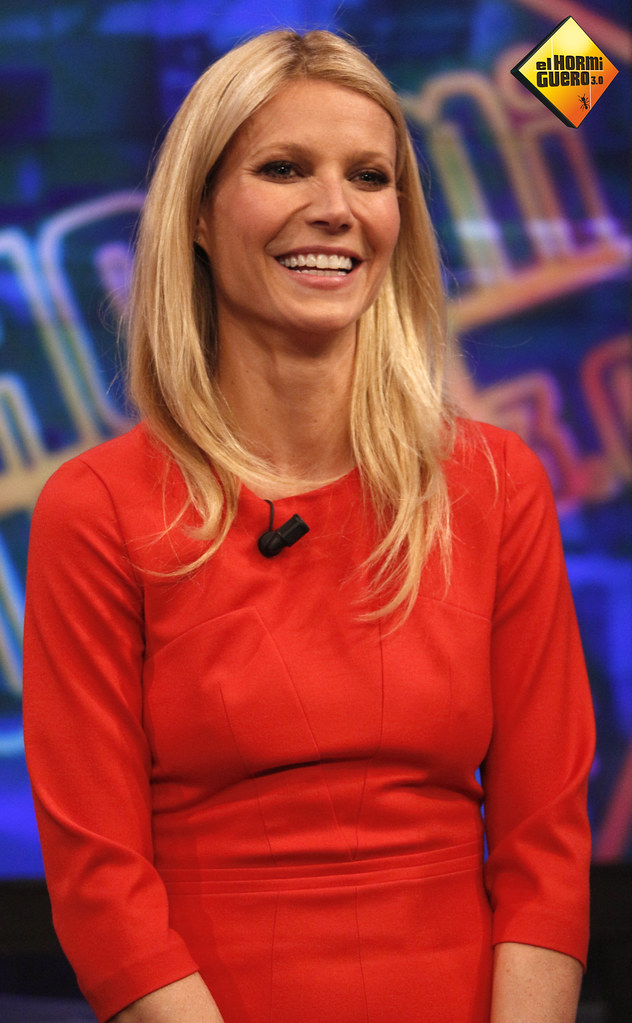
Gwyneth Paltrow, an American actress and businesswoman born in 1972, has carved a unique and often contentious path in the wellness industry through her lifestyle company, Goop. The daughter of filmmaker Bruce Paltrow and actress Blythe Danner, her career initially saw her rise as a leading lady in Hollywood. She earned significant accolades, including an Academy Award for her role as Viola de Lesseps in “Shakespeare in Love” (1998) and a Primetime Emmy Award for Outstanding Guest Actress in a Comedy Series for her guest role as Holly Holliday on “Glee” (2010–2011).
In 2005, Paltrow made a significant entrepreneurial pivot, launching Goop, which began as a weekly lifestyle newsletter in September 2008. The newsletter’s initial mission was to encourage readers to “nourish the inner aspect.” This shift coincided with a reduction in her acting workload after becoming a parent in 2004, leading to intermittent film appearances and eventually a break from acting after starring in the Netflix series “The Politician” (2019–).
Since its inception, Goop has expanded dramatically, evolving into a multifaceted web-based company, Goop.com, encompassing e-commerce, collaborations with fashion brands, pop-up shops, a wellness summit, a print magazine, a podcast, and a documentary series streamed on Netflix. This rapid growth and diversification, however, have not been without considerable scrutiny. Goop, and by extension Paltrow herself, has frequently been criticized for venturing into areas that overlap with pseudoscience, sparking widespread debate among medical professionals, scientists, and the public regarding the validity and safety of its recommendations.
This in-depth exploration will dissect the specific controversies that have defined Goop’s journey, meticulously examining the claims made by the company and the scientific community’s rigorous reactions. We will scrutinize a series of high-profile incidents, from questionable product promotions to the content of its popular Netflix series and various dietary recommendations, aiming to differentiate between well-substantiated wellness practices and those that have drawn sharp criticism for lacking scientific rigor or potentially posing health risks. The objective is to provide an authoritative, balanced, and evidence-based perspective on the multifaceted world of Gwyneth Paltrow’s wellness empire, drawing exclusively from the available factual information.

1. **Goop’s Broad Pseudoscience Promotion**:From its inception, Gwyneth Paltrow’s lifestyle company, Goop, has faced a recurring wave of criticism for promoting what many in the scientific and medical communities categorize as pseudoscience. The very foundation of this contention lies in the brand’s showcasing of numerous treatments and products whose efficacy and safety are largely unsupported by robust scientific evidence. This practice has not only sparked widespread debate but has also drawn significant backlash from professionals who warn that such recommendations can misinform the public and potentially lead individuals toward practices with unforeseen or even detrimental health consequences.
This pattern of engaging with and endorsing concepts that exist on the fringes of conventional medicine is a defining characteristic of Goop’s brand. The company’s expansion from a simple newsletter to a comprehensive web-based platform, complete with e-commerce, a wellness summit, and even a Netflix series, has amplified its reach and, consequently, the scrutiny it receives. Critics frequently point to Goop’s marketing language, which often implies clinical validity or profound health benefits without providing the “competent and reliable scientific evidence” that watchdog organizations deem necessary.
Brand analyst Jill Avery has offered insights into Goop’s strategic response to this persistent criticism. Avery notes that Goop often frames its rebuttals in terms of feminism, traditional Asian medicines, Eastern philosophies, and anti-establishment politics. This strategic positioning, Avery suggests, is designed to “strengthen their brand and draw their customers closer,” by appealing to an audience that may be inherently skeptical of mainstream institutions or drawn to alternative approaches to health and well-being. By aligning itself with these broader cultural and philosophical movements, Goop attempts to validate its offerings and maintain its narrative, even when faced with direct scientific challenges.
The brand’s unwavering commitment to exploring and promoting these alternative wellness modalities, despite a consistent lack of mainstream scientific endorsement, has cemented its reputation as a controversial figure in the health and lifestyle landscape. This approach, while commercially successful in attracting a loyal customer base, continues to fuel an ongoing discourse about responsible health information dissemination and the blurred lines between personal preference, anecdotal experience, and empirically validated science in the digital age. The debate surrounding Goop’s general promotion of pseudoscience thus encapsulates a larger societal conversation about trust in expertise and the definition of wellness itself.

2. **Vaginal Steaming**:Among the more widely publicized and controversial recommendations from Goop was the practice of “vaginal steaming.” This particular wellness modality garnered significant media attention and sharp criticism from medical professionals. The premise, as presented by Goop, involved sitting over a steaming blend of herbs, with claims suggesting benefits ranging from balancing hormone levels to cleansing the uterus. However, the scientific and medical community quickly highlighted the absence of any credible evidence to support these assertions.
Medical experts, including gynecologists, vehemently rejected the idea of vaginal steaming as a beneficial or even safe practice. They pointed out that the vagina is a self-cleaning organ, and introducing steam or herbal concoctions could disrupt its natural pH balance, potentially leading to infections, burns, or other adverse reactions. The very concept was deemed medically and scientifically impossible in terms of achieving the claimed internal cleansing or hormonal regulation. The practice was quickly labeled as a prime example of Goop’s promotion of treatments unsupported by scientific consensus.
The backlash against vaginal steaming served as a critical moment, bringing Goop’s wellness claims into sharper public focus and intensifying the scrutiny from health organizations. This instance underscored the perceived dangers of advocating for unproven treatments, particularly those that involve delicate bodily functions, without adequate scientific substantiation. The widespread condemnation from the medical establishment effectively solidified the public perception of Goop as a purveyor of “pseudoscience,” a label that has continued to adhere to the brand through subsequent controversies.

3. **Jade Eggs Controversy**:Another significant controversy that drew widespread public and scientific ire revolved around Goop’s promotion of “jade eggs” for vaginal insertion. These polished jade stones were marketed with a range of purported benefits, including claims that they could improve orgasms, balance hormones, and tone the pelvic floor. The price point for these items, often presented as ancient secrets for female wellness, also contributed to the public’s incredulity, positioning them as an expensive product with questionable utility.
The scientific community, once again, was swift to debunk these claims. Gynecologists and medical experts cautioned against the use of jade eggs, emphasizing that there was no scientific evidence to support any of the health benefits advertised. More alarmingly, they warned about potential health risks, such as bacterial infections, toxic shock syndrome, and physical irritation, due to the porous nature of jade and the potential for improper cleaning. These concerns directly contradicted Goop’s narrative of natural and beneficial wellness.
The “jade eggs” controversy escalated to the point where Goop faced legal action. The company ultimately “settled a lawsuit regarding the health claims it made over the jade eggs.” This legal resolution, which required Goop to pay civil penalties and issue refunds, served as a tangible consequence for promoting products with unsubstantiated health claims. It highlighted the real-world implications of Goop’s marketing practices and underscored the necessity for scientific evidence when making assertions about health and medical efficacy, moving the debate beyond mere opinion to legal accountability. The settlement mandated that Goop refrain from “making any claims regarding the efficacy or effects of any of its products without possessing competent and reliable scientific evidence that substantiates the claims” for a period of five years.
Read more about: Beyond the Limelight: Uncovering the Wildly Unexpected Side Hustles of Your Favorite Celebrities

4. **Dangerous Coffee Enema Device**:The controversies surrounding Goop extended beyond internal products and practices to include devices that posed potential health risks. Among these was the promotion of a “dangerous coffee enema device,” an item that once again drew immediate and severe criticism from the medical community. The concept of coffee enemas, often touted in alternative wellness circles for detoxification, involves introducing coffee into the rectum to stimulate bile flow and cleanse the colon.
Medical professionals unequivocally condemned the use of such devices and the practice itself, labeling it as not only unproven but potentially hazardous. The human body possesses its own sophisticated detoxification systems, primarily the liver and kidneys, and there is no scientific basis to suggest that coffee enemas enhance this natural process. Furthermore, the practice carries significant risks, including perforations of the bowel, electrolyte imbalances, burns, and infections, particularly when performed without medical supervision or with unsanitized equipment.
The inclusion of a “dangerous coffee enema device” in Goop’s offerings further solidified the perception that the brand was actively promoting “medically and scientifically impossible treatments, many of which have harmful consequences.” This particular item illustrated a direct correlation between Goop’s recommendations and tangible physical risks, moving beyond mere ineffective practices to those that could directly compromise an individual’s health. The swift and unanimous medical community’s rejection of this device underscored the serious concerns about Goop’s product vetting process and its responsibility in disseminating health information.

5. **”Body Vibes” Stickers**:Goop’s promotional activities extended into the realm of wearable technology with the introduction of “Body Vibes” stickers, which were marketed with claims of profound energetic benefits. These stickers were presented as being capable of “rebalance the energy frequency in our bodies,” an assertion rooted in pseudoscientific concepts rather than established medical or physiological principles. The promotion implied a sophisticated technology that could interact with the body’s subtle energies to restore harmony and well-being.
The controversy intensified when Goop falsely claimed that these stickers were made of a “NASA-developed material.” This specific claim proved to be a critical misstep, as it was directly challenged and refuted by NASA itself. A representative from NASA explicitly stated that the agency does not have any product resembling or related to the “Body Vibes” stickers, and that the material was not developed by them. This direct contradiction from a reputable scientific organization exposed a clear instance of misleading advertising and fact fabrication on Goop’s part.
The “Body Vibes” saga highlighted the brand’s willingness to leverage scientific authority, even if falsely, to lend credibility to its products. This incident was a stark illustration of the “fact vs. fiction” dilemma inherent in Goop’s wellness routine. The outright fabrication of a NASA connection not only undermined Goop’s credibility but also served as a clear example of “promoting pseudoscience” through deceptive marketing tactics, reinforcing the criticisms from consumer watchdog groups and the scientific community regarding the integrity of Goop’s product claims.

6. **The Goop Lab Netflix Series**:In January 2020, Goop extended its reach into mainstream entertainment with the release of “The Goop Lab,” a documentary series on Netflix. The six-part show, produced by and starring Gwyneth Paltrow, aimed to promote Goop’s brand and explore various wellness topics. However, rather than fostering understanding and acceptance, the series immediately ignited a fresh wave of controversy, becoming a focal point for critics concerned about the dissemination of medical and scientific misinformation.
The series delved into a range of subjects considered pseudoscientific, including “energy healing,” the use of “psychedelic drugs,” “cold therapy,” “anti-aging” practices, “mediumship,” and aspects of “female uality.” Each episode explored a different modality, often featuring Goop staff members participating in the experiences. Critics argued vehemently that granting Goop access to Netflix’s global platform was a “win for pseudoscience,” providing an unchallenged stage for concepts lacking scientific evidence, rather than presenting a balanced, evidence-based exploration of health and wellness.
Upon the release of its first trailer, and more intensely after the full series became available, “The Goop Lab” sparked widespread controversy concerning the “medical and scientific misinformation it presented.” Health professionals and science communicators expressed alarm that the show normalized and legitimized practices that could be ineffective or, in some cases, harmful. This public outcry underscored the ongoing tension between entertainment value and the ethical responsibility of media platforms to ensure the factual accuracy and scientific validity of content related to health, particularly when featuring topics explicitly criticized by medical experts.
Read more about: From Hollywood Spotlight to New Horizons: Actresses Who Boldly Redefined Fame at Their Peak

7. **Dietary Recommendations: The ‘It’s All Good’ Elimination Diet**Gwyneth Paltrow’s foray into wellness extends deeply into dietary recommendations, notably through her 2013 cookbook, “It’s All Good: Delicious Easy Recipes That Will Make You Look Good and Feel Great.” This publication became a significant platform for advocating what is known as an elimination diet, a dietary approach designed to identify food intolerances or allergies by systematically removing and reintroducing specific foods.
The book’s premise suggested that adhering to its recipes and principles would not only enhance physical appearance but also significantly improve overall well-being. However, the specific elimination diet promoted within its pages faced scrutiny from medical professionals for being “unsupported by medical evidence.” Critics often point out that while elimination diets can be medically supervised tools, advocating for them broadly without individual health assessment risks nutritional deficiencies or an unnecessary restriction of healthy food groups.
Despite the lack of conventional scientific backing for its specific claims, the book did capture public attention, particularly for some of its more accessible recipes. Notably, “It’s All Good” included a recipe for avocado toast, which, in the years following its publication, became a widely copied and adapted dish. This inadvertently contributed to the avocado toast phenomenon, cementing its status as a significant food trend of the 2010s, showcasing how Goop’s influence could permeate popular culture even amidst scientific debate regarding its health assertions.

8. **Controversial Long COVID Advice**In early 2021, Gwyneth Paltrow publicly disclosed her personal experience with long COVID, sharing that the lingering effects of the virus had left her with “some long-tail fatigue and brain fog.” In response to these symptoms, she advocated for a specific set of treatments that she claimed had aided her recovery, bringing a new dimension to her wellness advocacy that once again attracted significant medical commentary.
Her recommended regimen included a “ketogenic and plant-based” diet, strictly avoiding sugar and alcohol, alongside a practice of fasting daily until 11:00 AM. Additionally, Paltrow endorsed the use of infrared saunas as part of her personal recovery strategy. These suggestions were presented as beneficial for combating the persistent symptoms associated with long COVID, drawing from alternative wellness paradigms rather than established clinical guidelines.
This advice, however, swiftly drew criticism from prominent medical figures, including Professor Stephen Powis, the National Medical Director of NHS England. Professor Powis publicly cautioned against such recommendations, emphasizing that “established science and evidence” should guide treatment for long COVID, and that unproven remedies could potentially be detrimental. This instance underscored the ongoing tension between personal wellness narratives and evidence-based medicine, particularly in the context of a global public health crisis.
Read more about: Navigating the Latest CDC and Health Guidelines: Your Essential Guide to Flu and COVID-19 Vaccines This Season

9. **Stance on GMO Labeling**Gwyneth Paltrow also entered the public discourse surrounding food policy, specifically by advocating for mandatory labeling of foods containing genetically modified organisms (GMOs). In 2015, she released a video promoting this stance, aligning herself with a movement that seeks greater transparency in food production and consumer choice regarding genetically modified ingredients.
Her advocacy, however, was met with a notable negative reaction from a coalition of scientists and science communication mothers. This group argued that mandatory GMO labeling, while ostensibly about transparency, often implies a health risk not supported by scientific consensus. They contended that such campaigns could foster unwarranted public fear and misinformation about genetically engineered foods, which many scientific bodies deem safe.
The strong response from these science-advocating mothers ultimately led to the creation of a documentary titled “Science Moms.” This film was specifically designed to highlight mothers who champion science-based decision-making in matters concerning the health and nutrition of children. The “Science Moms” initiative directly countered the narrative often associated with celebrity endorsements of alternative food perspectives, emphasizing the importance of evidence in public health discussions.
Read more about: Family Dinner Simplified: A Comprehensive Guide to the Easiest Meal Kits for Busy Households

10. **Personal Practices: Cupping Therapy**Beyond the products and dietary recommendations promoted by Goop, Gwyneth Paltrow has also publicly embraced various personal wellness practices that fall outside conventional medicine. One such practice that garnered significant media attention was cupping therapy. In 2004, Paltrow was notably photographed attending a film premiere with distinct circular bruises on her back, revealing her engagement with this ancient alternative treatment.
Cupping therapy involves placing cups on the skin to create suction, which is believed by some to facilitate healing by promoting blood flow, reducing muscle tension, and drawing out toxins. While it has roots in traditional Chinese medicine and other ancient healing systems, its specific physiological benefits and mechanisms of action remain a subject of ongoing scientific investigation and debate within Western medical communities.
Paltrow’s public display of the marks left by cupping served as an early, high-profile example of a celebrity endorsing an alternative therapy, bringing it into mainstream awareness. This personal choice to utilize such practices reflects a broader inclination within her wellness philosophy to explore and adopt modalities that may not yet have extensive conventional medical validation, consistent with the exploratory nature often seen in the wider Goop brand.

11. **Personal Practices: Transcendental Meditation**Among her personal wellness disciplines, Gwyneth Paltrow has also integrated Transcendental Meditation (TM) into her routine. As of 2013, she has been noted as a practitioner of this specific form of meditation, which involves the silent repetition of a mantra to promote relaxation and mental clarity. TM is taught through a standardized seven-step course by certified instructors and is practiced for 15–20 minutes twice a day while sitting comfortably with eyes closed.
Transcendental Meditation distinguishes itself from other forms of meditation through its specific technique and structured teaching methodology. Proponents claim it can reduce stress, improve mental health, and enhance overall well-being, with a body of research exploring its effects on various physiological and psychological markers. Unlike some of the more contentious Goop-promoted treatments, TM has a longer history of study and a more widely accepted presence within discussions of stress reduction and mindfulness.
Paltrow’s adoption of TM illustrates her engagement with practices aimed at internal balance and mental serenity, complementing the physical and dietary aspects of her wellness advocacy. It underscores a holistic approach to health that embraces both the tangible and intangible dimensions of well-being, showcasing a personal commitment to various self-care modalities, whether mainstream or alternative, in her pursuit of a balanced lifestyle.

12. **Ongoing Legal Scrutiny from TINA.org**The controversies surrounding Goop’s marketing practices have led to consistent oversight from consumer watchdog organizations, particularly Truth in Advertising (TINA.org). On January 27, 2020, TINA.org filed another formal complaint with the district attorneys of California, alleging that Goop had continued to engage in deceptive marketing tactics, despite previous legal agreements.
This complaint followed an earlier lawsuit by the State of California against Goop, which had resulted in a settlement. As part of that agreement, Goop had committed to refrain from “making any claims regarding the efficacy or effects of any of its products without possessing competent and reliable scientific evidence that substantiates the claims” for a period of five years. The legal mandate was a direct response to concerns about unsubstantiated health assertions, such as those made for the jade eggs.
TINA.org’s 2020 complaint specifically alleged that Goop continued to market its products with claims that they were “clinically-proven” to treat significant health conditions, including anxiety, depression, and Obsessive-Compulsive Disorder (OCD). Such assertions, without the requisite scientific evidence, represent a direct challenge to the prior legal agreement and highlight the persistent battle between aspirational wellness marketing and the imperative for verifiable, evidence-based health information.
Gwyneth Paltrow’s journey through the wellness landscape with Goop remains a compelling narrative, continually challenging the boundaries between personal belief, entrepreneurial vision, and scientific rigor. From promoting unproven therapies and questionable products to advocating for specific dietary and lifestyle choices, her brand has sparked a vital public discourse on health, authenticity, and the responsibilities inherent in disseminating wellness information. The ongoing scrutiny from medical experts, scientific organizations, and consumer watchdogs underscores a fundamental tension: the pursuit of well-being through innovative, often experimental, approaches versus the demand for practices grounded in empirical evidence. Ultimately, the story of Goop is a continuous exploration of where fact truly meets fiction in the ever-evolving world of celebrity wellness, inviting us all to critically examine the claims we encounter on our own paths to health.



